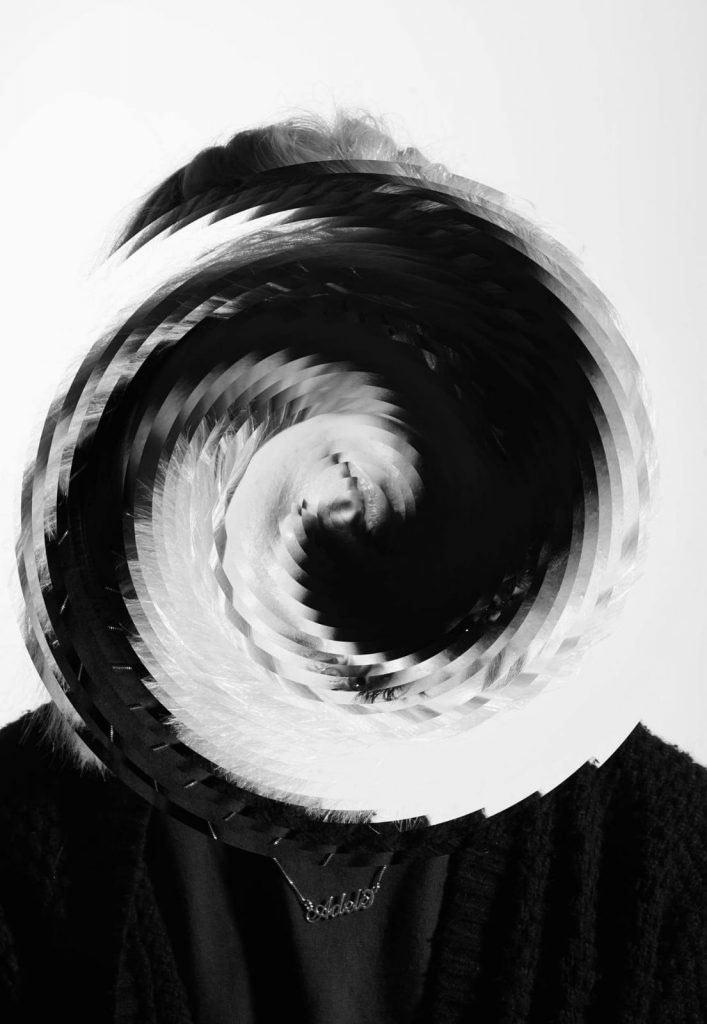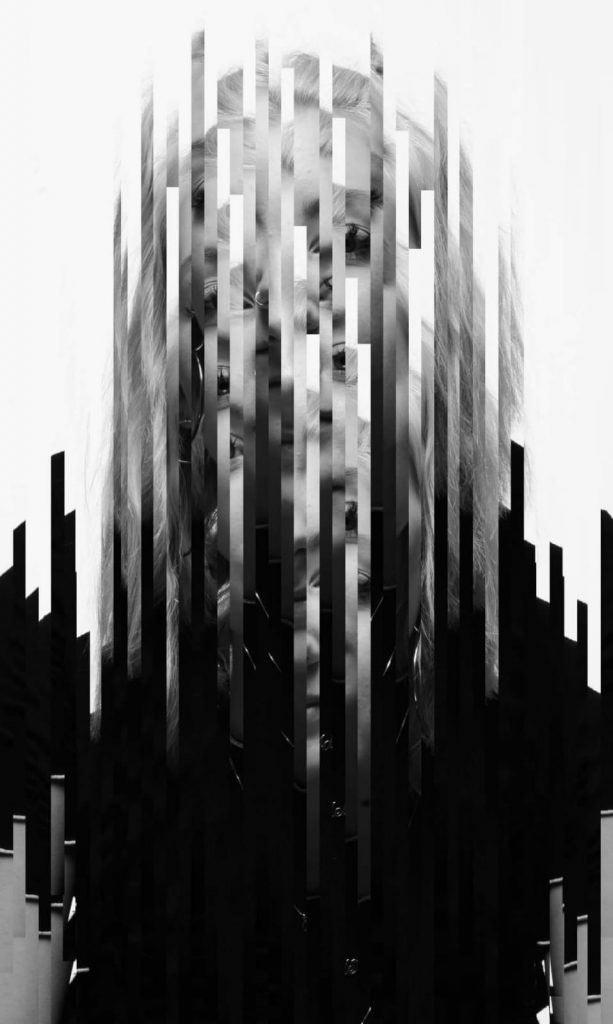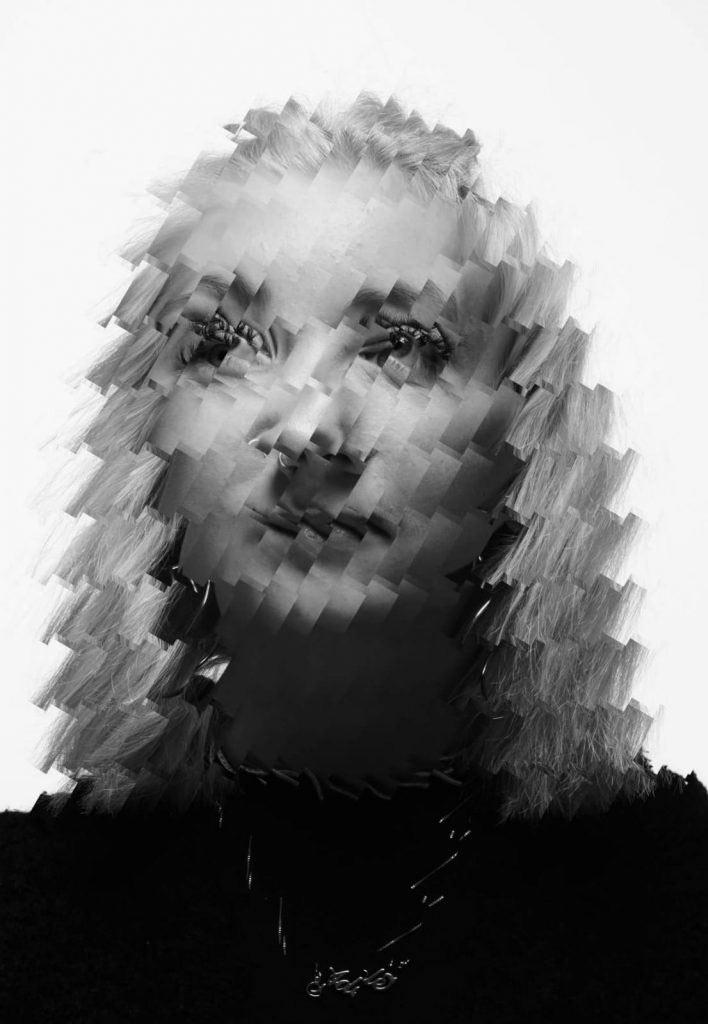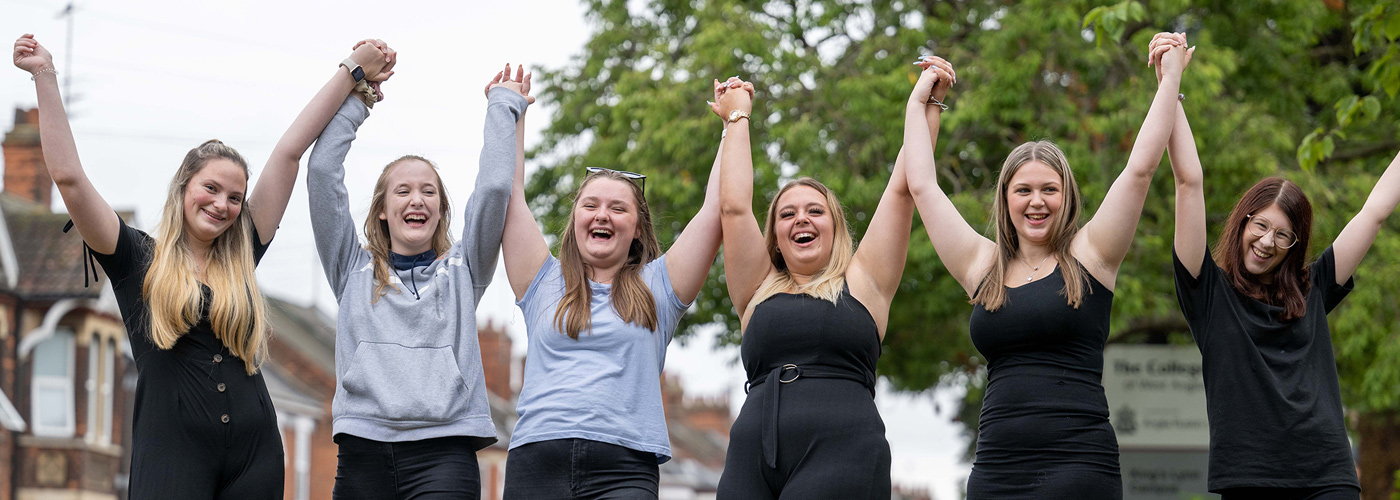College art and design alumna, Rebecca Hutchings, has recently sold her photography collection to the charity Headway, a UK-wide charity that works to improve lives after brain injuries.
It was during research for her final major project at college when Rebecca came across face blindness (otherwise known as prosopagnosia) and thought this would make an interesting concept for her photography project.

Prosopagnosia is a condition that can develop following a brain injury. People with the condition have difficulty recognising the difference between faces. They might not even be able to recognise their closest friends and family, or their own face in the mirror.
As face recognition comes so naturally to most people, it can be very difficult for those with normal face processing abilities to understand.
“When I first discovered face blindness I had never heard of it before. I asked friends and family and no one else had heard of it either,”
said Rebecca.
“I found the condition very interesting and decided to do some more research into what it was and whether it could be applied to my work. I thought my abstract style would make prosopagnosia the perfect concept. I created a series of images, using distortion to symbolise the difficulty experienced by people with prosopagnosia to recognise faces. Through my photographs I aim to encourage people to question the meaning behind them and from that, to hopefully learn more about the condition.”

Rebecca is in close contact with the charity, Face Blind UK, who help to raise awareness of the condition.
Hazel Plastow who heads up Face Blind UK and lives with Prosopagnosia, said:
‘The photos are very interesting, and I found it interesting to reflect on my emotional response to the disrupted images – for me: feeling thrown off balance and frustrated by the missing information.’

Rebecca said:
“I think awareness of prosopagnosia needs to be improved. Unless you have personal experience of the condition it’s not something many people know about. Without my project I would not have known about it. It’s important to appreciate that you never really know what someone has been through/is going through. If someone doesn’t recognise you, or seems confused, it may not be intentional.”



